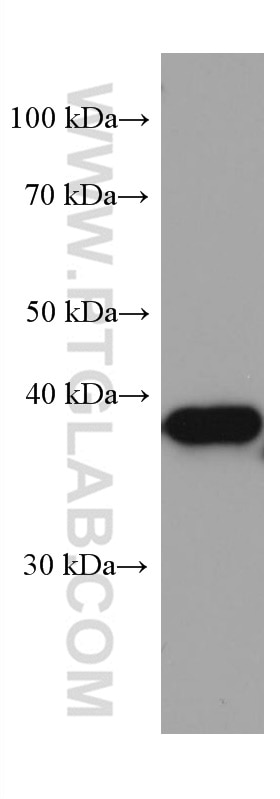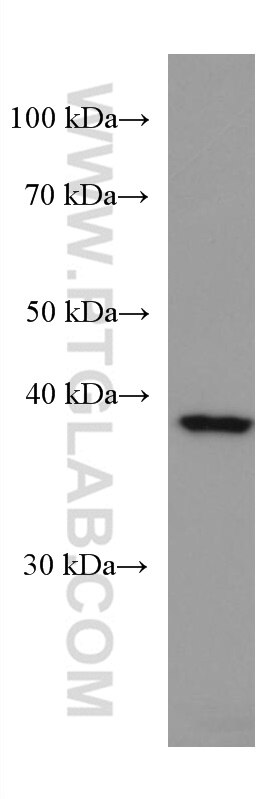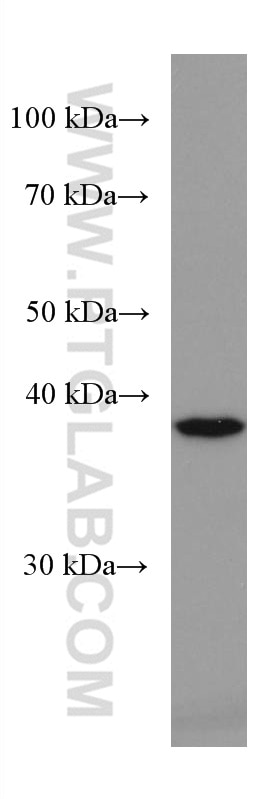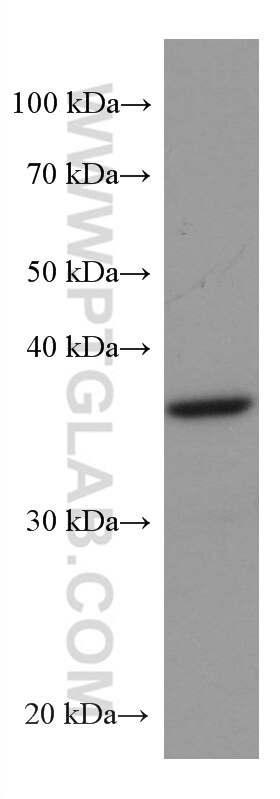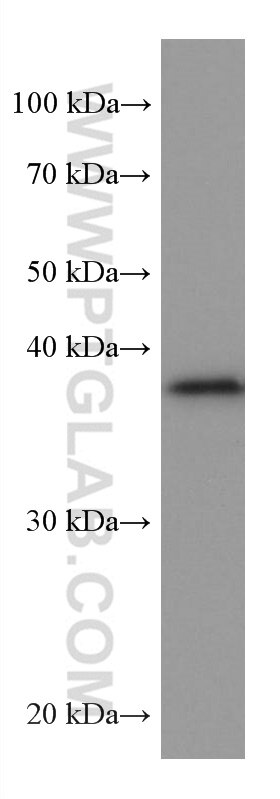Anticorps Monoclonal anti-ZnT3
ZnT3 Monoclonal Antibody for WB,ELISA
Hôte / Isotype
Mouse / IgG2b
Réactivité testée
Humain, porc, rat
Applications
WB,ELISA
Conjugaison
Non conjugué
CloneNo.
1B9B1
N° de cat : 67262-1-Ig
Synonymes
Galerie de données de validation
Applications testées
| Résultats positifs en WB | tissu cérébral de porc, cellules HEK-293, cellules Jurkat, tissu cérébral de rat, tissu testiculaire humain |
Dilution recommandée
| Application | Dilution |
|---|---|
| Western Blot (WB) | WB : 1:2000-1:8000 |
| It is recommended that this reagent should be titrated in each testing system to obtain optimal results. | |
| Sample-dependent, check data in validation data gallery | |
Informations sur le produit
67262-1-Ig cible ZnT3 dans les applications de WB,ELISA et montre une réactivité avec des échantillons Humain, porc, rat
| Réactivité | Humain, porc, rat |
| Hôte / Isotype | Mouse / IgG2b |
| Clonalité | Monoclonal |
| Type | Anticorps |
| Immunogène | ZnT3 Protéine recombinante Ag10735 |
| Nom complet | solute carrier family 30 (zinc transporter), member 3 |
| Masse moléculaire calculée | 388 aa, 42 kDa |
| Poids moléculaire observé | 38-40 kDa |
| Numéro d’acquisition GenBank | BC028358 |
| Symbole du gène | SLC30A3 |
| Identification du gène (NCBI) | 7781 |
| Conjugaison | Non conjugué |
| Forme | Liquide |
| Méthode de purification | Purification par protéine A |
| Tampon de stockage | PBS avec azoture de sodium à 0,02 % et glycérol à 50 % pH 7,3 |
| Conditions de stockage | Stocker à -20 ℃. L'aliquotage n'est pas nécessaire pour le stockage à -20oC Les 20ul contiennent 0,1% de BSA. |
Informations générales
ZnT3, encoded by SLC30A3, is a member of SLC30A family which is zinc transporter sequestrating cytosolic zinc into intracellular compartments or effluxing zinc to the extracellular space. Excessive zinc level can cause neuron apoptosis and lead to cognitive impairments. Znt3 facilitates the transport and storage of zinc in synaptic vesicles. Abnormal ZnT3 expression has been linked to some neurodegenerative disorders.
Protocole
| Product Specific Protocols | |
|---|---|
| WB protocol for ZnT3 antibody 67262-1-Ig | Download protocol |
| Standard Protocols | |
|---|---|
| Click here to view our Standard Protocols |
